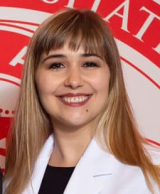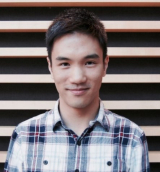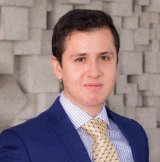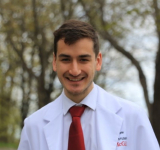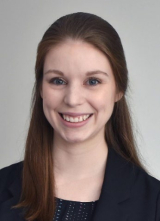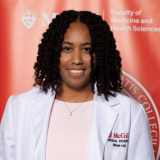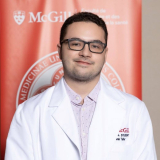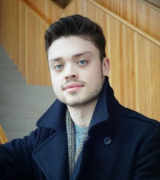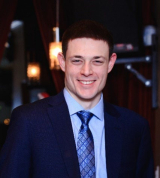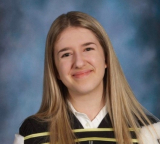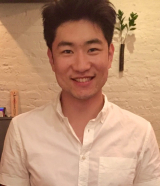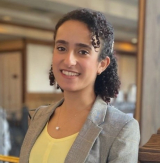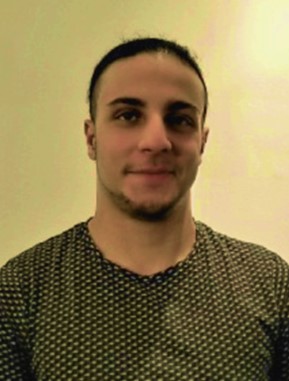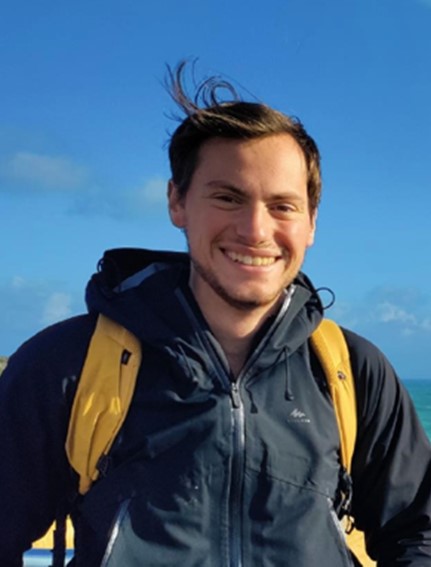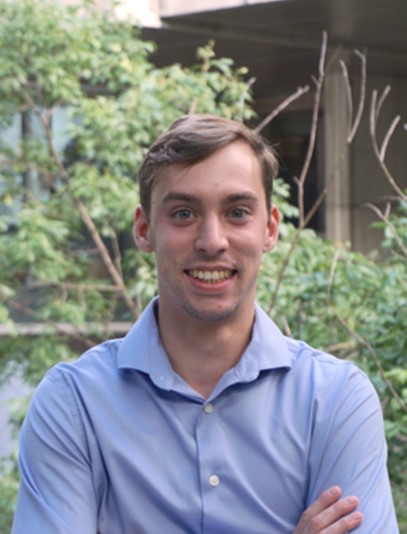MDCM & PhD
You could make major contributions to health care innovation with a career as a physician scientist!
A career as a physician-scientist is extremely rewarding and meaningful! It is also challenging and requires creativity, perseverance and passion. McGill's MDCM & PhD program is designed to prepare qualified students for successful careers in medicine and research. To learn more about this prestigious program, please see the program brochure mdcm_phd_program_brochure_eng.pdf.
For all program admission enquiries, please contact the Faculty of Medicine and Health Sciences Undergraduate Medical Admissions Office: admissions.med [at] mcgill.ca
For general information about the program, please write to: mdphdadmin.med [at] mcgill.ca

Program Overview
The Faculty of Medicine and Health Sciences offers a combined clinical and doctoral research program leading to the MDCM and PhD degrees (Combined Doctor of Medicine and Master of Surgery Medicinae Doctorem et Chirurgiae Magistrum) with Doctor of Philosophy (Philosophiae Doctor). This is a 7 to 8 year program in which the basic and clinical sciences portions of the medical curriculum are completed from September of year one to December of year two, prior to the beginning of full-time graduate studies. In preparation for graduate studies, MD-PhD students conduct research with clinical and basic scientists for 2 months during the Summer term of their first year. This gives students the opportunity to prepare the research and communication skills necessary for the successful completion of graduate research (such as detailed scientific experimentation, sourcing literature, developing hypotheses, working with methodologies, interpreting data, writing and presenting findings), and to screen potential graduate research laboratories. Graduate research is expected to last three, but no more than four years by which time all course work and research requirements for the PhD degree must be completed and a thesis submitted. The defense of the thesis will ordinarily take place at a later date. From January of year five to May of year seven students will complete the requirements for the MDCM degree.
Throughout the seven or eight years, students in the MDCM & PhD program meet at two-week intervals from September to April to attend research seminars presented by clinician-scientists from within, as well as outside, the McGill scientific community, and discuss their research and network with other students in the program.

Along with the MDCM-PhD Program director, the Program Advisor Committee provides oversight and supports the student selection process. The graduate studies part of the program is administered by the students' respective academic units and McGill's Office of Graduate and Postdoctoral Studies (GPS) and the MDCM phase is administered by the office of Undergraduate Medical Education.
MD-PhD Students
The McGill MDCM-PhD Program currently has an enrollment of 29 students. Prospective applicants are welcome to communicate with the students to obtain more information on the program via email at: mdphdadmin.med [at] mcgill.ca
|
Mackenzie Michell-Robinson |
|
|
Sarah Lépine |
|
|
Owen Chen |
|
|
Matthew Hintermayer |
|
|
Joan Miguel Romero |
|
|
Mark Sorin |
|
|
Sarah Maritan |
|
|
Étienne Maes |
|
|
Mimosa Luigi |
|
|
Judy Chen |
|
|
Michael Luo |
|
|
Tarek Taifour |
|
|
Jamie Magrill |
|
|
Nik Kalashnikov |
|
|
Julia Luo |
|
|
Ella Sahlas |
|
|
Jae Hyun Byun |
|
|
Aline Atallah |
|
|
Ayden Watt |
|
|
Nicole Xi Zhang |
|
|
Malik Affar Class of 2031 Department: Tbd Profile: |
|
|
Daniel Mendelson Department: Tbd |
|
|
Francesca Del Giorgio Class of 2031 Department: Epidemiology and Biostatistics Profile: |
|
|
Liam Wilson Class of 2031 Department: Experimental Medicine Profile: |
|
|
Yigu Zhou Department: Neurology & Neurosurgery Profile: |
|
MDCM-PhD Alumni
Tianwei Ellen Zhou Class of 2019 (MDCM & PhD) - now doing ophthalmology residency at the Université de Montréal
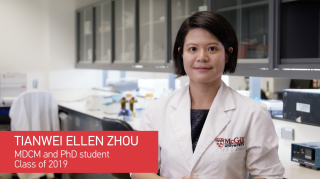
Paul Savage Class of 2019 (MDCM & PhD) - now doing surgical residency at University of Toronto
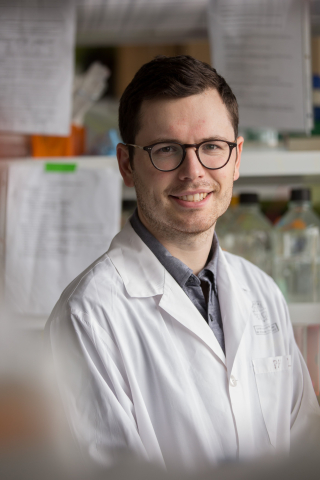
Paul’s interest in medicine was sparked by great mentors, including his high school science teacher, a physician-scientist who often highlighted the link between science and medicine.
Torn between research and medicine
When applying to McGill, he vacillated between research and medicine. “I was interested in the intellectual challenge of research and the possibility of helping society at large. But, I was also interested in becoming a doctor because of the patients I’d treat. The McGill MDCM & PhD Program opened the door to both – medicine to help patients today; research to help them tomorrow,” he says.
Studying an aggressive form of breast cancer
Under the supervision of Dr. Morag Park, Director of the Rosalind and Morris Goodman Cancer Research Centre at McGill, Paul studied an aggressive form of breast cancer. The goal was to determine if subsets of people living with breast cancer might benefit from drugs already approved and commonly used to treat other cancers. “It is an exciting time to be a cancer researcher. Thanks to the genomic era, the field is changing at an incredibly rapid pace. How we treat and diagnose people living with the disease is being revolutionized,” he says.
Paul is now doing his surgical residency at University of Toronto. He has always loved sports and has recently taken up golf, although he won’t reveal his handicap.
Dr. Kevin Petrecca Class of 2002 (MDCM & PhD)
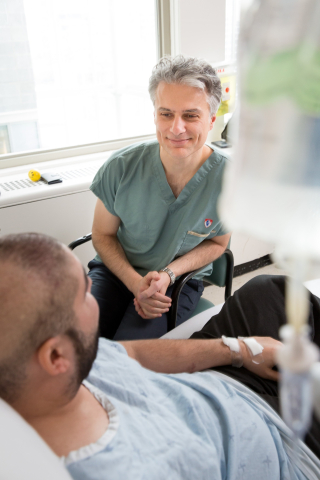
Dr. Petrecca makes his living opening heads and cutting into brains - providing life saving treatments for patients. He is a neurosurgeon specializing in brain cancer. When not in the operating room, you’ll find him in his lab perfecting a neuro-oncology surgical tool or maybe doing fundamental research to determine why brain cancer stem cells are treatment resistant. Then again, you might find him hanging out with his wife and three children.
Passionate about his work
To say he is busy is an understatement. “I have the luxury of doing what I am interested in. I never actually have to go to work or work late because it isn’t work. I love the balance. I love treating patients and love doing my research. You need to work in a place that values physician-scientists and with colleagues who understand your dual role. After that it is fun,” he says.
Not really sure he wanted to be a doctor
Dr. Petrecca did things in reverse when he started McGill’s MDCM & PhD Program. He focused on research and put off his medical studies. “I deferred medicine as long as I could because I wasn’t really sure I wanted to be a doctor, however, I soon discovered I really liked taking care of people and making a difference in their lives.”
There is no doubt Dr. Petrecca makes a difference. He, along with Frédéric Leblond of Polytechnique Montréal and the Research Centre of the Université de Montréal, received the 2017 Québec Science Discovery of the Year Award. They developed a fiber-optic probe, no bigger than a pencil, that differentiates between cancer cells and healthy brain cells in a matter of seconds.
Improving patient outcomes
“Often it is impossible to visually distinguish cancer from normal brain, so invasive brain cancer cells frequently remain after surgery, leading to cancer recurrence and a worse prognosis. The probe improves patient outcomes,” Dr. Petrecca says.
Dr. Petrecca acknowledges physician-scientists bring a unique perspective to biomedical research that is inspired by their experience caring for patients. “All fields require people to move them forward. The contribution physician-scientists make to both research and patient care is critical if we are going to answer the most pressing health care issues facing society.”
If you would like to connect with students in the MD-PhD program, please contact admissions.med [at] mcgill.ca.
With their dual degrees, physician-scientists are poised to bridge the gap between research and clinical practice. Most will spend the majority of their time doing research and the remainder taking care of patients. This allows them to identify novel and clinically relevant questions at the patient’s bedside that inspire and inform their research.

